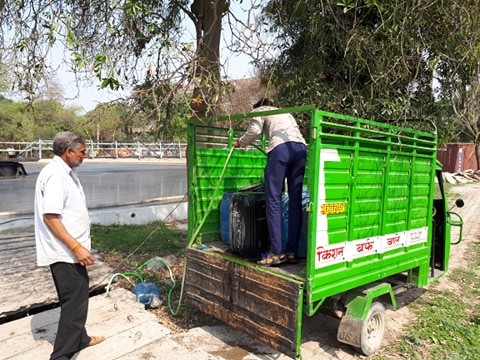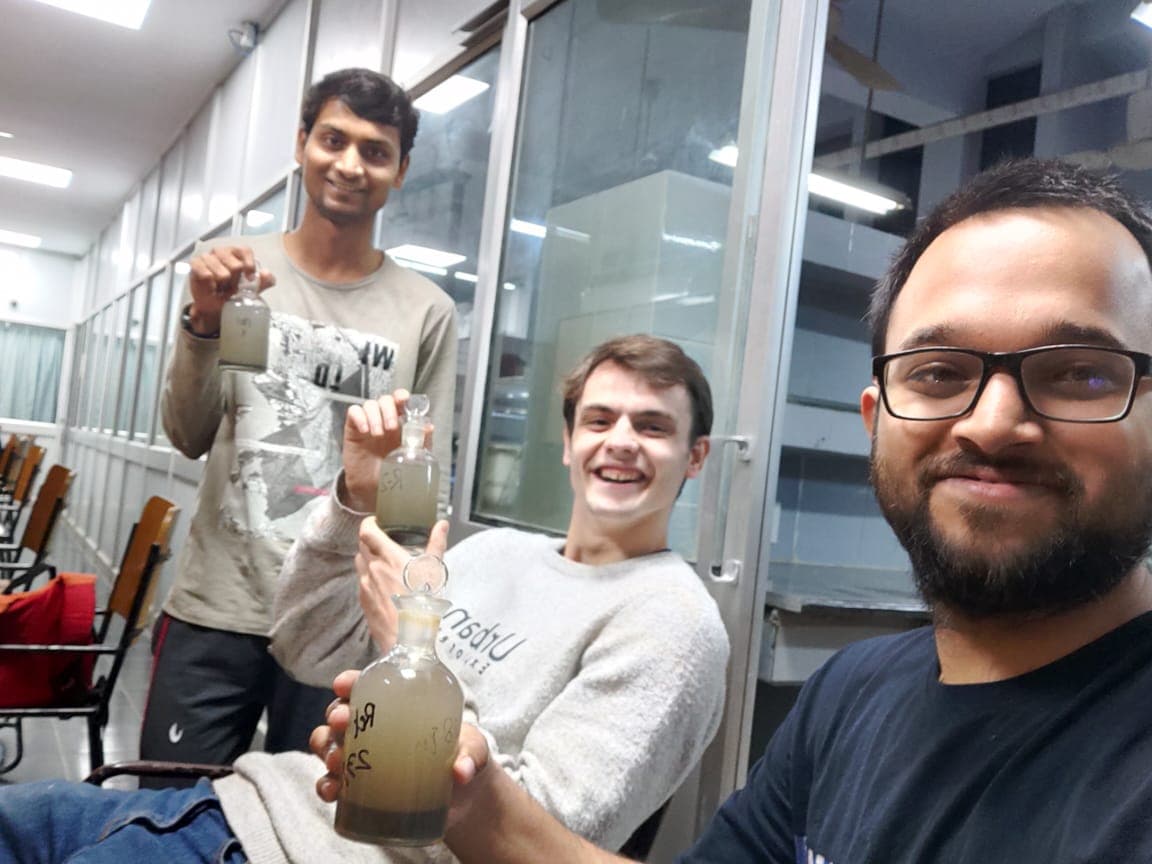Wastewater and municipal waste
The Andicos water treatment technology combines ultrafiltration of wastewater with anaerobic digestion of the organic-rich retentate and organic municipal waste in one system. In order to implement the AndicosTM technology in (the demo case of ) Kanpur, it was necessary to search for the optimal adjustments for the IPC Membrane component of this technology in the Indian context, i.e. using the municipal wastewater at Kanpur. “In order to obtain the desired continuity of the membrane filtration at the highest possible flux, I had to carry out different filtration tests with the local wastewater. For this purpose, I travelled several times with colleagues from the IIT Kanpur to the Jajmau wastewater treatment plant to collect 1000 litres of wastewater which was then transported to the test installation at IIT Kanpur.”

Restaurants
This wastewater was then tested for a week on different parameter settings in order to get the best possible results. Next to the filtration experiments, a series of digestion tests were also set up to evaluate the biodegradability of the retentate and the Indian kitchen waste. For the latter, Ruben helped organize the collection of kitchen waste from several local restaurants. “With the test results, we were able to determine the optimal settings of this technology. We can now hopefully achieve high levels of purification and generate green energy in a very cost-effective manner, compared to current approaches in India” says Ruben Vingerhoets. “Besides my test work, I also collaborated with two local students on membrane operation and digestion, who will continue this work going forwards.”
Problem solver
Ruben Vingerhoets’ Msc promotor Ludo Diels (University of Antwerp – VITO) endorsed the award of Watercircle.be (the network organisation of Belgian water treatment technology providers): “Ruben showed an excellent ability to work under difficult conditions and to take initiatives. He was critical and very original in the approach to solve technical and scientific problems. He had very high skills to solve, with low availability of tools, all technical problems. He also had a good view on the river quality problems and the ways to manage it.”
Ruben could finish his thesis work in India a few days before the country went into lockdown due to COVID-19. The overall experience was very positive, says Ruben. “I look back at my time in India with great affection. I felt very much at home in Kanpur because of the enormous hospitality of the local students and staff. From day one, everyone gave me a warm welcome. When I arrived in Kanpur, a a staff member of IIT Kanpur was waiting for me at the station to take me to my accommodation immediately.”
Scouted by the basketball team
“As a keen sportsman, I also appreciated the fact that I was immediately "scouted" by the university basketball team and was allowed to play a few inter-university matches. Because of my height - I am 1.87 metres - I immediately became one of the spearheads of the team.
I once started my bio-engineering studies with the higher goal of working in developing countries to be able to contribute to solutions for the most distressing problems. It is precisely in these places in the world where I feel you can contribute the most.”

Transfer passion
“I am also very happy that I was able to collaborate with two local students concerning the Andicos technology and that I could engage with them my passion for sanitation and water purification. I am confident that the Pavitra Ganga project is in good hands and that they will deliver great results in the future.”
